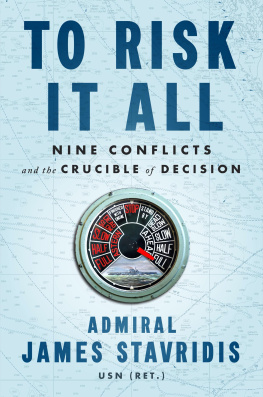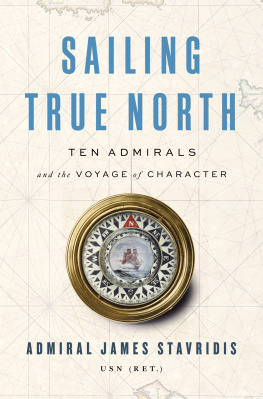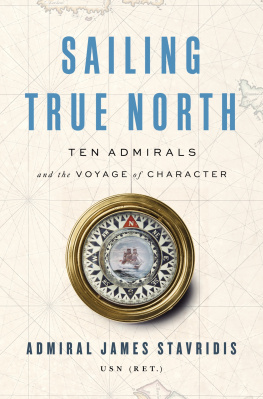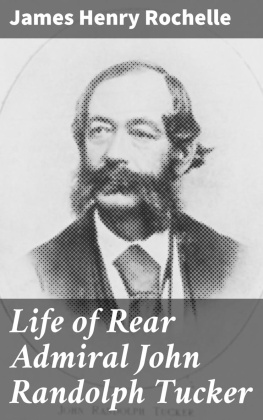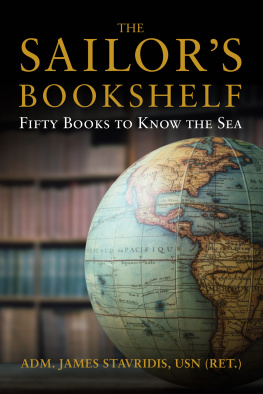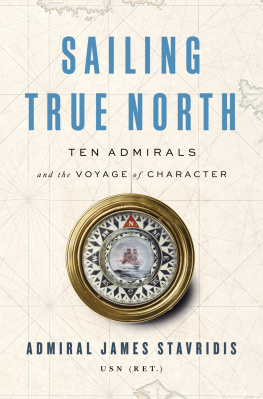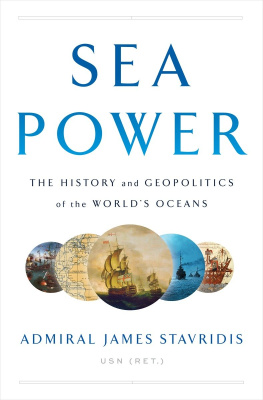Admiral James Stavridis - To Risk It All : Nine Conflicts and the Crucible of Decision
Here you can read online Admiral James Stavridis - To Risk It All : Nine Conflicts and the Crucible of Decision full text of the book (entire story) in english for free. Download pdf and epub, get meaning, cover and reviews about this ebook. year: 2022, publisher: Penguin Publishing Group, genre: History. Description of the work, (preface) as well as reviews are available. Best literature library LitArk.com created for fans of good reading and offers a wide selection of genres:
Romance novel
Science fiction
Adventure
Detective
Science
History
Home and family
Prose
Art
Politics
Computer
Non-fiction
Religion
Business
Children
Humor
Choose a favorite category and find really read worthwhile books. Enjoy immersion in the world of imagination, feel the emotions of the characters or learn something new for yourself, make an fascinating discovery.
- Book:To Risk It All : Nine Conflicts and the Crucible of Decision
- Author:
- Publisher:Penguin Publishing Group
- Genre:
- Year:2022
- Rating:3 / 5
- Favourites:Add to favourites
- Your mark:
- 60
- 1
- 2
- 3
- 4
- 5
To Risk It All : Nine Conflicts and the Crucible of Decision: summary, description and annotation
We offer to read an annotation, description, summary or preface (depends on what the author of the book "To Risk It All : Nine Conflicts and the Crucible of Decision" wrote himself). If you haven't found the necessary information about the book — write in the comments, we will try to find it.
To Risk It All : Nine Conflicts and the Crucible of Decision — read online for free the complete book (whole text) full work
Below is the text of the book, divided by pages. System saving the place of the last page read, allows you to conveniently read the book "To Risk It All : Nine Conflicts and the Crucible of Decision" online for free, without having to search again every time where you left off. Put a bookmark, and you can go to the page where you finished reading at any time.
Font size:
Interval:
Bookmark:
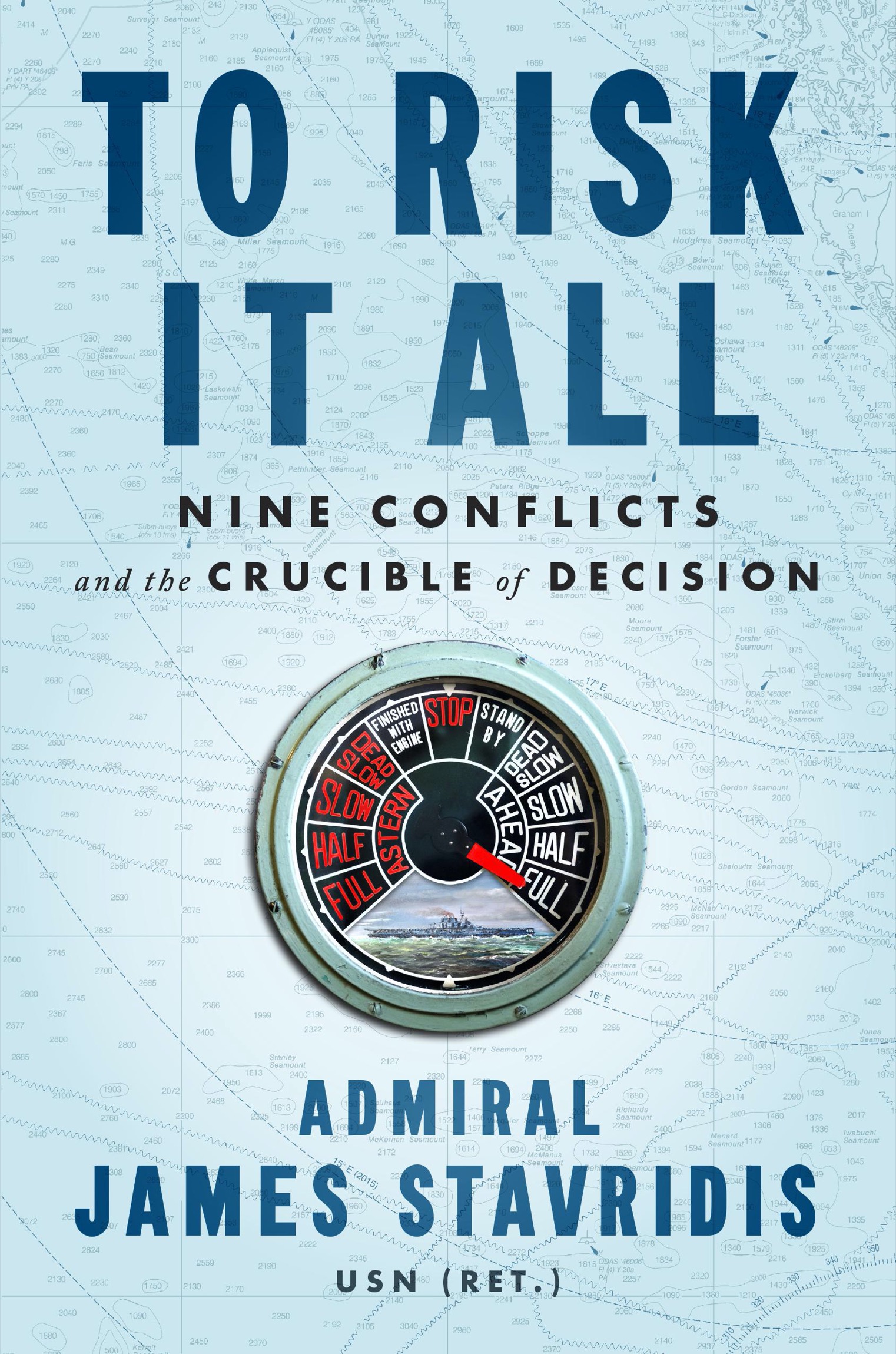
Sailing True North
Sea Power
The Accidental Admiral
Partnership for the Americas
Destroyer Captain
2034: A Novel of the Next War
Command at Sea
The Leaders Bookshelf
Watch Officers Guide
Division Officers Guide
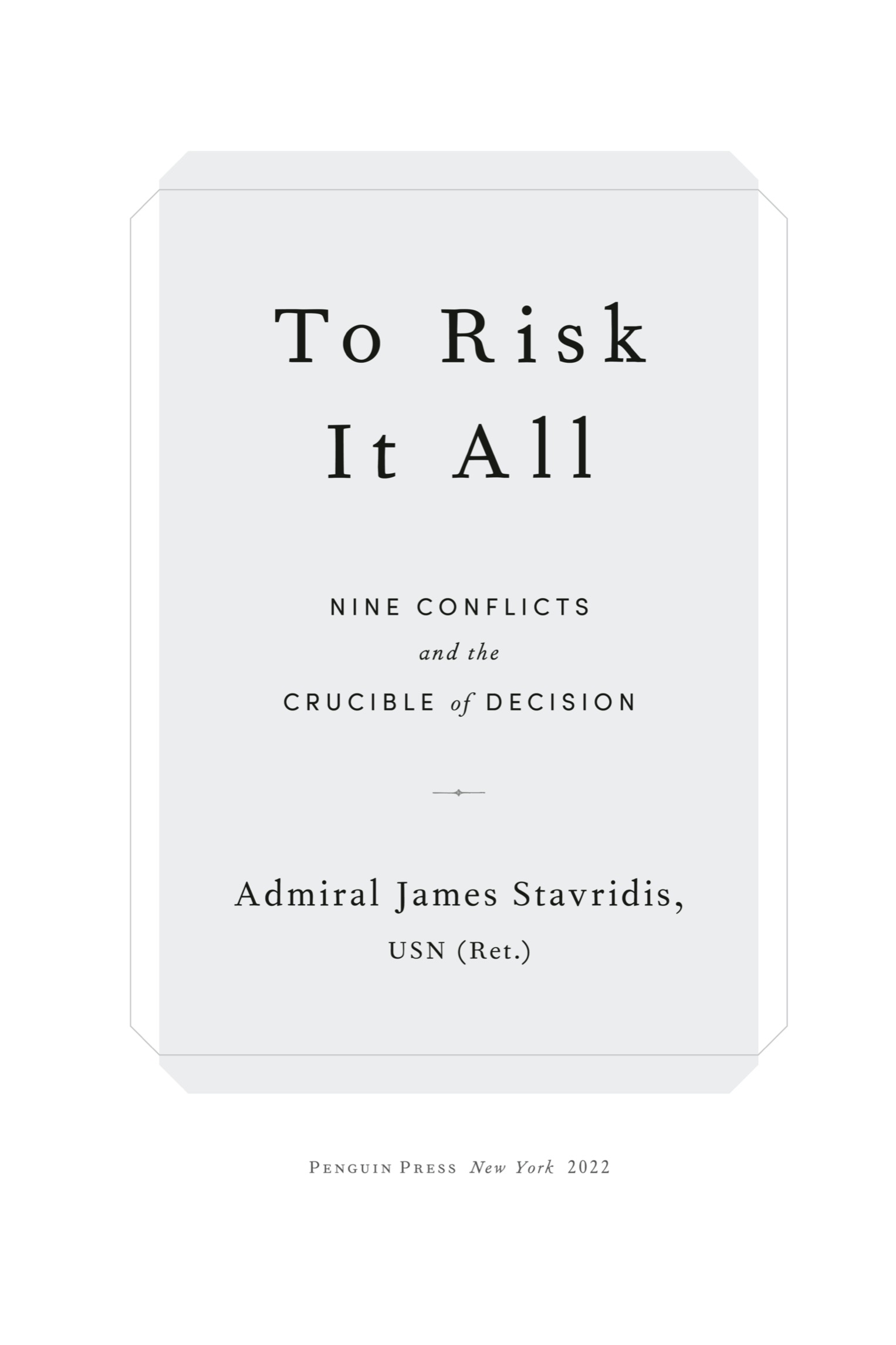
PENGUIN PRESS
An imprint of Penguin Random House LLC
penguinrandomhouse.com
Copyright 2022 by James Stavridis
Penguin supports copyright. Copyright fuels creativity, encourages diverse voices, promotes free speech, and creates a vibrant culture. Thank you for buying an authorized edition of this book and for complying with copyright laws by not reproducing, scanning, or distributing any part of it in any form without permission. You are supporting writers and allowing Penguin to continue to publish books for every reader.
Photo credits
Engraving by Henry Bryan Hall and Sons via Naval History and Heritage Command
Engraving by G. R. Hall, after a painting by Alonzo Chappel. Published by Johnson, Fry & Company, New York, 1858. Naval History and Heritage Command Photograph
Portrait by Noah Kendall Saunders via Naval History and Heritage Command
Naval History and Heritage Command
Official US Navy Photograph, National Archives, via Naval History and Heritage Command
Maurice Constant, National Archives, via Naval History and Heritage Command
Naval History and Heritage Command
Photo by Petty Officer 2nd Class Jonathan Nelson, US Navy
Photo by Mass Communication Specialist Seaman Alexander Williams, US Navy
Library of Congress Cataloging-in-Publication Data
Names: Stavridis, James, author.
Title: To risk it all : nine conflicts and the crucible of decision /
Admiral James Stavridis, USN (Ret.)
Other titles: Nine conflicts and the crucible of decision
Description: New York : Penguin Press, 2022. | Includes bibliographical
references and index.
Identifiers: LCCN 2021030958 (print) | LCCN 2021030959 (ebook) | ISBN 9780593297742 (hardcover) | ISBN 9780593297759 (ebook)
Subjects: LCSH: United StatesHistory, Naval | United States.
NavyHistory. | United States. NavyBiography. | Leadership.
Classification: LCC E182 .S794 2022 (print) | LCC E182 (ebook) | DDC 359.0092/273dc23
LC record available at https://lccn.loc.gov/2021030958
LC ebook record available at https://lccn.loc.gov/2021030959]
Designed by Cassandra Garruzzo Mueller, adapted for ebook by Shayan Saalabi
pid_prh_6.0_140078982_c0_r0
To all who decide to serve the nation
And to the love of my life, Laura, who thankfully took a risk on me
The essence of ultimate decision remains impenetrable to the observeroften, indeed, to the decider himself.... There will always be the dark and tangled stretches in the decision-making processmysterious even to those who may be most intimately involved.
John F. Kennedy
In 2021, after decades of searching, undersea explorers finally found the wreck of USS Johnston (DD-557), one of the most famous destroyers in US naval history. It sank in very deep water off the Philippine Islands, after the chaotic and heroic Battle off Samar on October 25, 1944. The warship lay at the bottom of the sea undisturbed for over seventy-five years in more than twenty thousand feet of water, making it the deepest shipwreck ever located and successfully surveyed. When it sank, it was under the command of Commander Ernest Evans, who would become the first Native American to be awarded a Medal of Honor. Ernest Evans was half Cherokee and a quarter Creek. As famed historian Rear Admiral Samuel Eliot Morison said in his iconic study of US naval operations in the Second World War, In no engagement of its entire history has the United States Navy shown more gallantry, guts, and gumption than in those two morning hours between 0730 and 0930 off Samar. Under the determined command of Ernest Evans, his destroyer led a seemingly suicidal charge against vastly superior Japanese warships to try to protect lightly armored carriers during the crucial moments of the Battle of Leyte Gulf. Of his crew of 329, Evans and 183 others perished in the battle or in the waters afterward.
I studied the battle many years ago as a young midshipman at Annapolis and have continued to read the many books and articles about Commander Evans and his gallant destroyer over the years. Born in 1908, Evans graduated from the Naval Academy in 1931 and commanded a destroyer for the first time early in the war: USS Alden. After successful Pacific combat operations in Alden, he was selected as the commissioning commander of the new Fletcher-class destroyer Johnston in 1943, and he subsequently deployed again to the Pacific at the height of the war.
In the fall of 1944, Johnston was part of a small flotilla of seven destroyers (including also USS Hoel and USS Samuel B. Roberts, which were likewise sunk in combat) assigned to protect light escort aircraft carriers at Leyte Gulf under the overall command of Admiral Bull Halsey. Due to Halseys impetuous decision to move the bulk of his Third Fleet north to chase what he thought was the main Japanese force, the small ships were all that remained between the carriers and a heavy Japanese surface force. General Douglas MacArthurs ability to retake the Philippines and fulfill his storied pledge to return hung in the balance.
Facing twenty-three vastly larger Japanese battleships and heavy cruisers, the seven small destroyers charged to protect the flattops. The action is universally known as the last stand of the tin can sailors, a tin can being an affectionate Navy nickname for a destroyer. Despite being totally outgunned, Evans made the hardest of decisions in combat: to risk it all in accomplishing his mission. He laid a smoke screen and charged at flank speed directly at the Japanese to make a torpedo attack, telling his crew over the ships announcing system that the odds were stacked against them, but they would attack anyway to protect the rest of the force. For two hours, the tiny destroyer engaged in a series of gun battles with the much larger Japanese warships. Evans was badly wounded by Japanese shellfire, but his small ship continued the fight relentlessly. The heavy guns of the Japanese fleetincluding the largest super battleship in their fleet, Yamatoeventually sank Johnston alongside several other destroyers.
The decision Evans made in the furious moments of combat off Samarto charge a vastly stronger enemycontinues to be studied and revered in todays Navy. Even the Japanese fleet rendered honors as the small ships sank before them, and treated the survivors they recovered with respect as they were taken prisoner. And because of the heroic actions of Johnston and the other destroyers, the carriers were able to escape. The Japanese admiral believed the destroyers would not have charged without heavier American forces in the vicinity and withdrew in confusion. MacArthur was able to successfully land his amphibious force and free the Philippines as he had promised.
It was the pivotal moment in the most consequential battle at sea of the Second World War. The US success rested on many factors, of course, but the decision Evans made to charge the enemy, a split-second choice when the battle surged around him, was at the heart of the US victoryalthough it cost him his life and his ship. As I contemplated that battle again and again in the course of a long Navy careerand think about it todayI ask myself two questions.
Font size:
Interval:
Bookmark:
Similar books «To Risk It All : Nine Conflicts and the Crucible of Decision»
Look at similar books to To Risk It All : Nine Conflicts and the Crucible of Decision. We have selected literature similar in name and meaning in the hope of providing readers with more options to find new, interesting, not yet read works.
Discussion, reviews of the book To Risk It All : Nine Conflicts and the Crucible of Decision and just readers' own opinions. Leave your comments, write what you think about the work, its meaning or the main characters. Specify what exactly you liked and what you didn't like, and why you think so.

